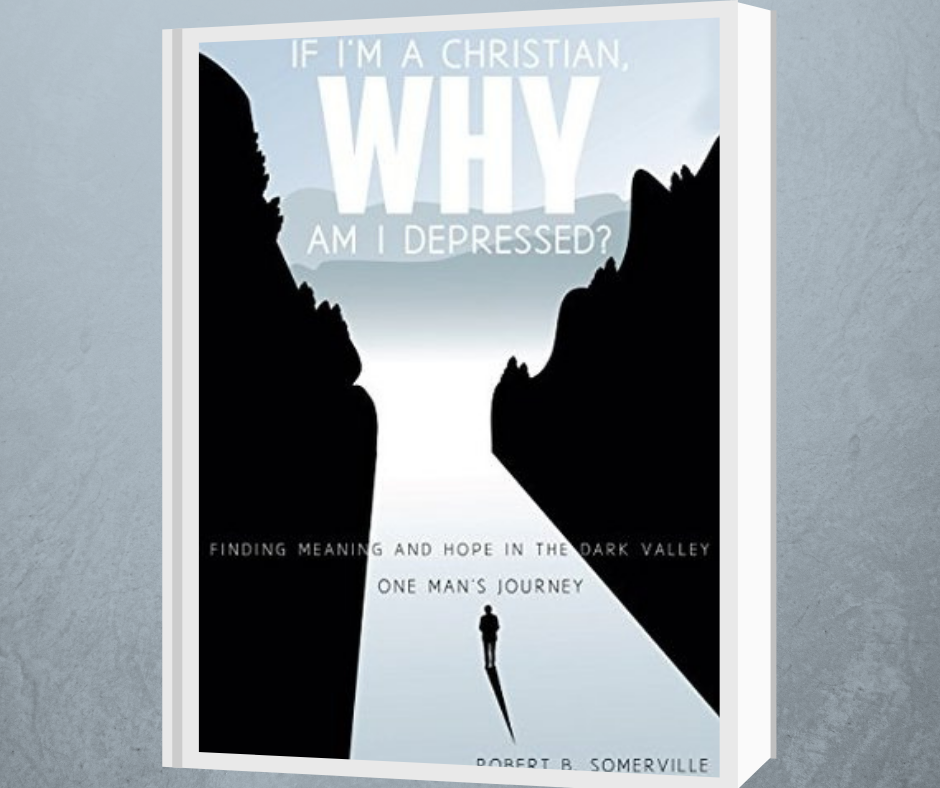Book Reviews
If I’m a Christian, Why Am I Depressed? by Robert B. Somerville | Review by Rosa Byler

As the title of this book suggests, “depressed” is not an adjective that we regularly connect with “Christian.” While godly men from Job and Elijah to Martin Luther and Charles Spurgeon have suffered from depression, it can be “hard to talk about in the Christian community [20].” Those unfamiliar with biblical counseling may view depression simplistically as either a spiritual problem to be repented of or a physical problem to be treated with medication.
In searching for scriptural help for depression, it would be hard to find anyone more experienced and qualified to offer it than Robert Somerville. A pastor for more than twenty-five years, he also spent two years doing crisis telephone counseling and was active in his church’s counseling ministry. Since 2005 he has taught biblical counseling at The Master’s College in California.
Yet in 2009, Somerville found himself in the local emergency room after another sleepless night, thinking “wild, bizarre, and crazy thoughts, including those of suicide [15].” Months of despair and hopelessness followed, but the result was the writing of this excellent book.
Somerville begins with the story of his experience: the catalysts leading to his breakdown included physical exhaustion, over-commitment to his work, and a painful back condition. When his wife suggested the possibility of depression, he read Ed Welch’s Depression: A Stubborn Darkness and agreed. Eager to start practicing the remedies that he had often recommended, he found it much more difficult than he had imagined. Over the next several months he lost interest in life, doubted his salvation, and even considered “stepping off of the curb into traffic [79].”
Finding hope through the message of the gospel is the stated theme of the second chapter but also of the whole book. Subsequent chapters discuss the problems of guilt, fear, worry, and anxiety through the lens of Scripture and demonstrate how to express our grief to God using the psalms of lament. While the book reads like a mini-encyclopedia on depression from a pastoral point of view, one chapter does explore physical aids such as rest, nutrition, exercise, and even medication. For the caregiver, Somerville’s wife Mary adds a section on receiving and offering gospel comfort.
Each chapter begins with a prayer from The Valley of Vision (a collection of Puritan prayers) and ends with a summary, a “Response” section of related practical homework, and a case study of deliverance from depression. These stories vary widely enough to provide encouragement to nearly anyone.
Both reassuring and sobering, this book proves that depression is not always the direct result of personal sin yet reminds the reader of just how stubborn its darkness can be. The absolute necessity of depending on the Word of God is stated clearly as well as shown and implied. Somerville’s wife and friends were strong Christians who knew the Bible well and could assure him of the scriptural truths he temporarily doubted; Bildad, Zophar, and Eliphaz would have constituted a very different support team.
Two points of minor concern: first, although the book is directed to the depressed person, the quantity of helpful information could be overwhelming (especially since the nature of depression generally rules out productive self-counseling.) Keep a copy on your shelf and study it, but be cautious about merely handing it to someone in distress.
Second, those who view the doctrine of perseverance differently than Somerville may be alarmed by his mention of “[knowing] that a Christian cannot lose his salvation” [43]. (This proved both a torment and a comfort to him. He felt that maybe he had been deceived in thinking that he was a Christian, but eventually came to the conclusion that he must be under God’s discipline.) However, this particular argument is not the focus of the book and does not surface again, even in the appendix on becoming a Christian.
Seven appendices provide the reader with resources for biblical counseling, encouraging books and hymns, a Bible study guide, and a summary of gospel truths to read daily. An exceptional resource, this book is one every church library should own!